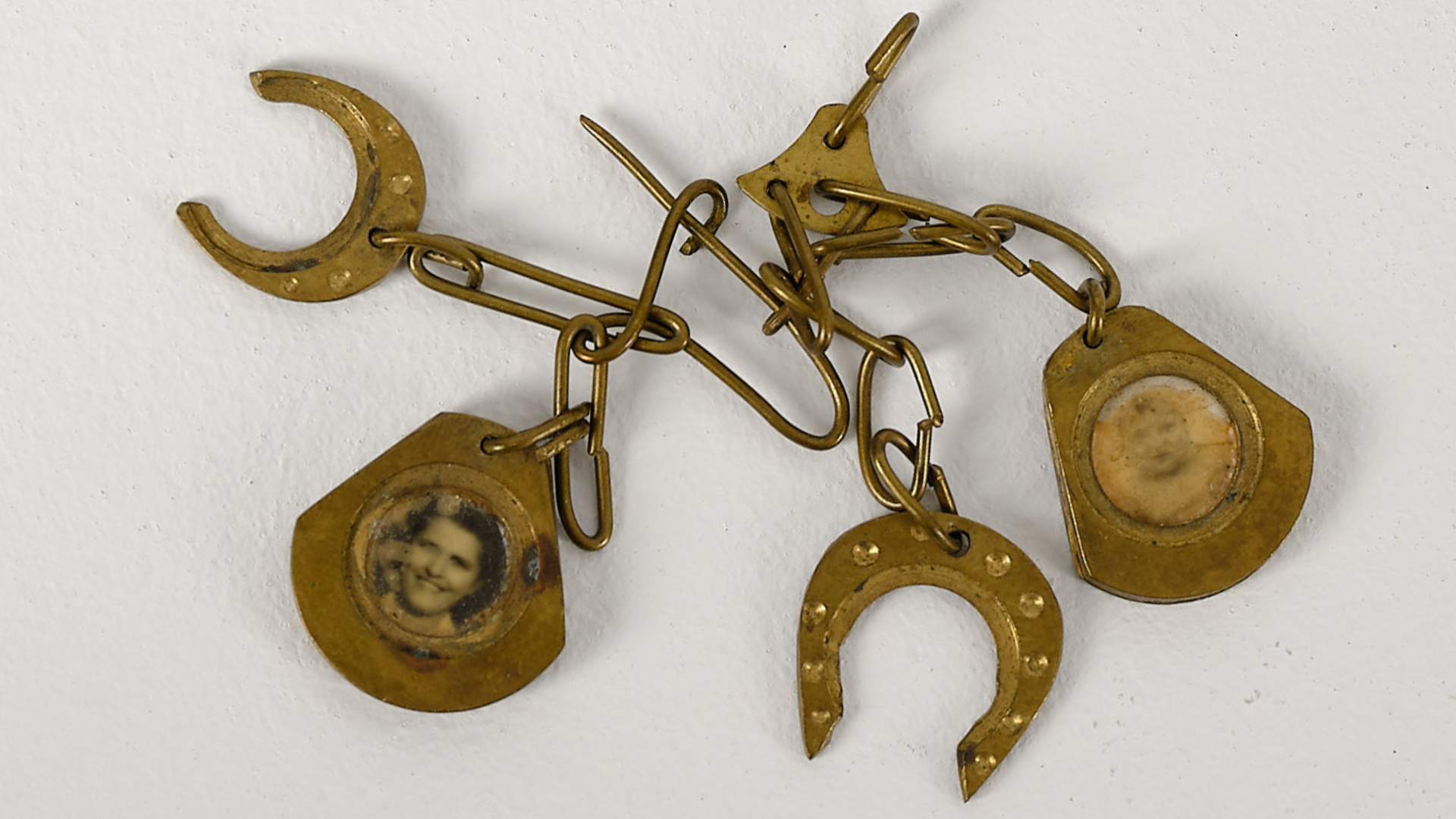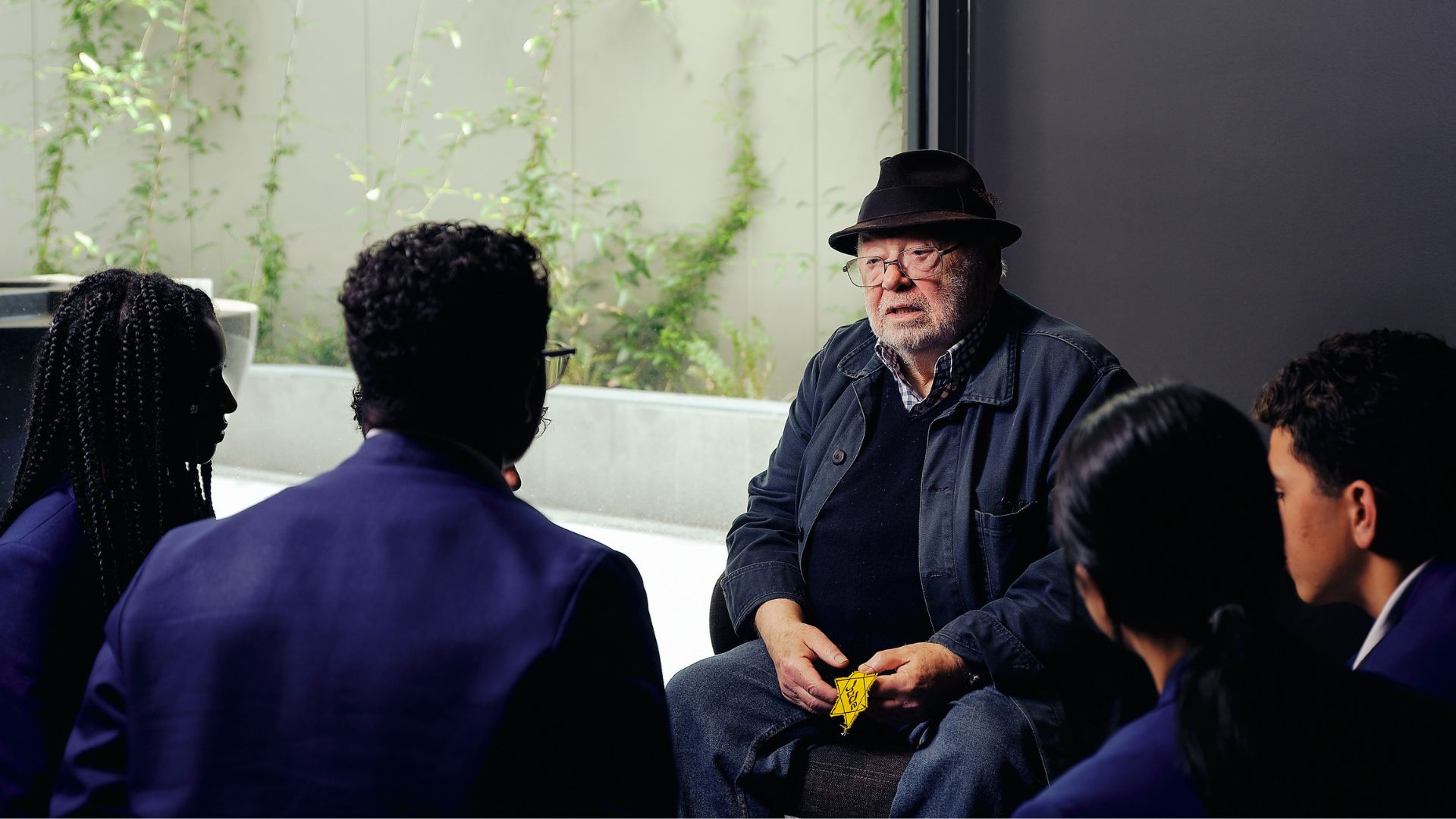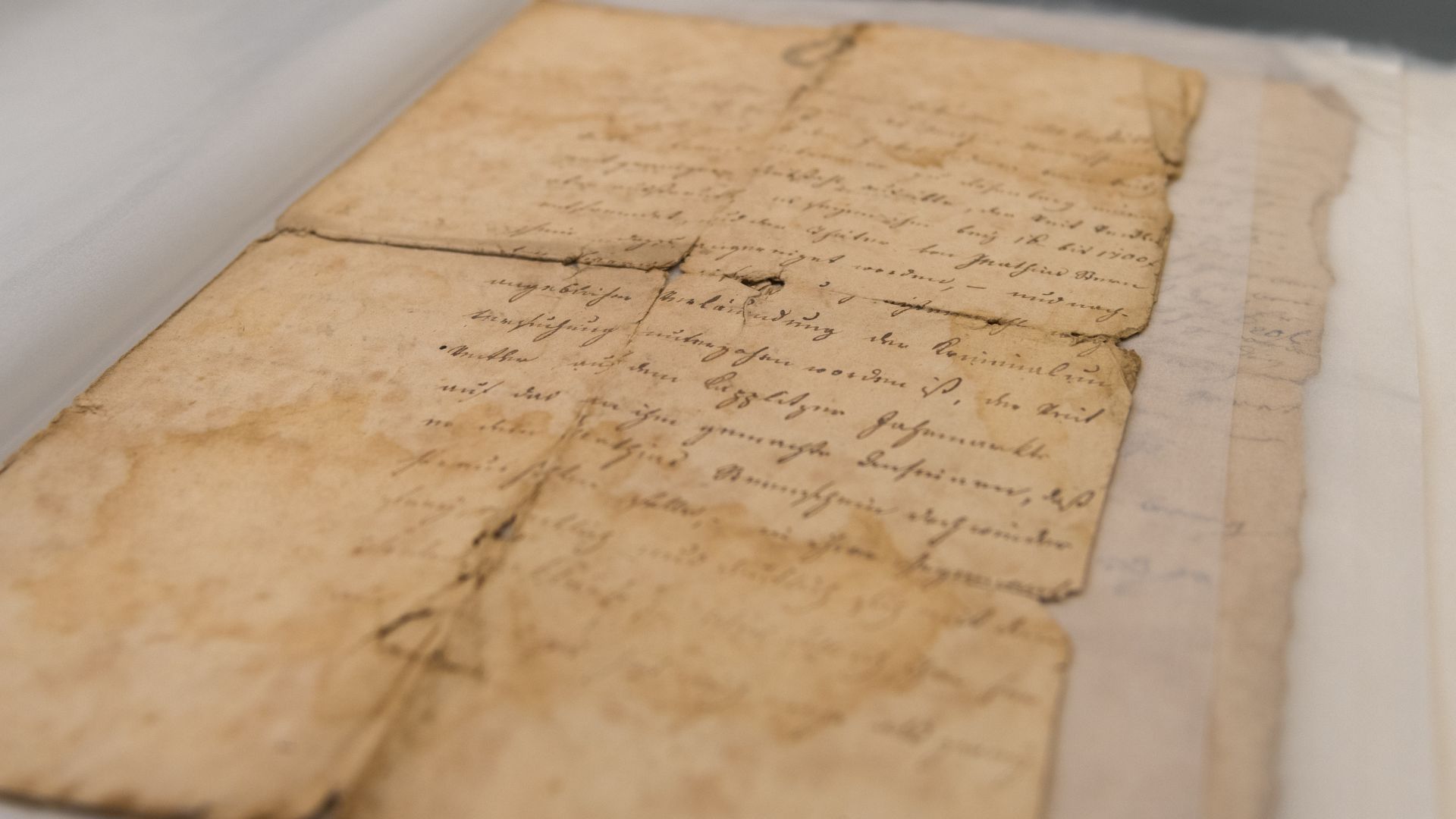Holocaust Resource Centre and Library
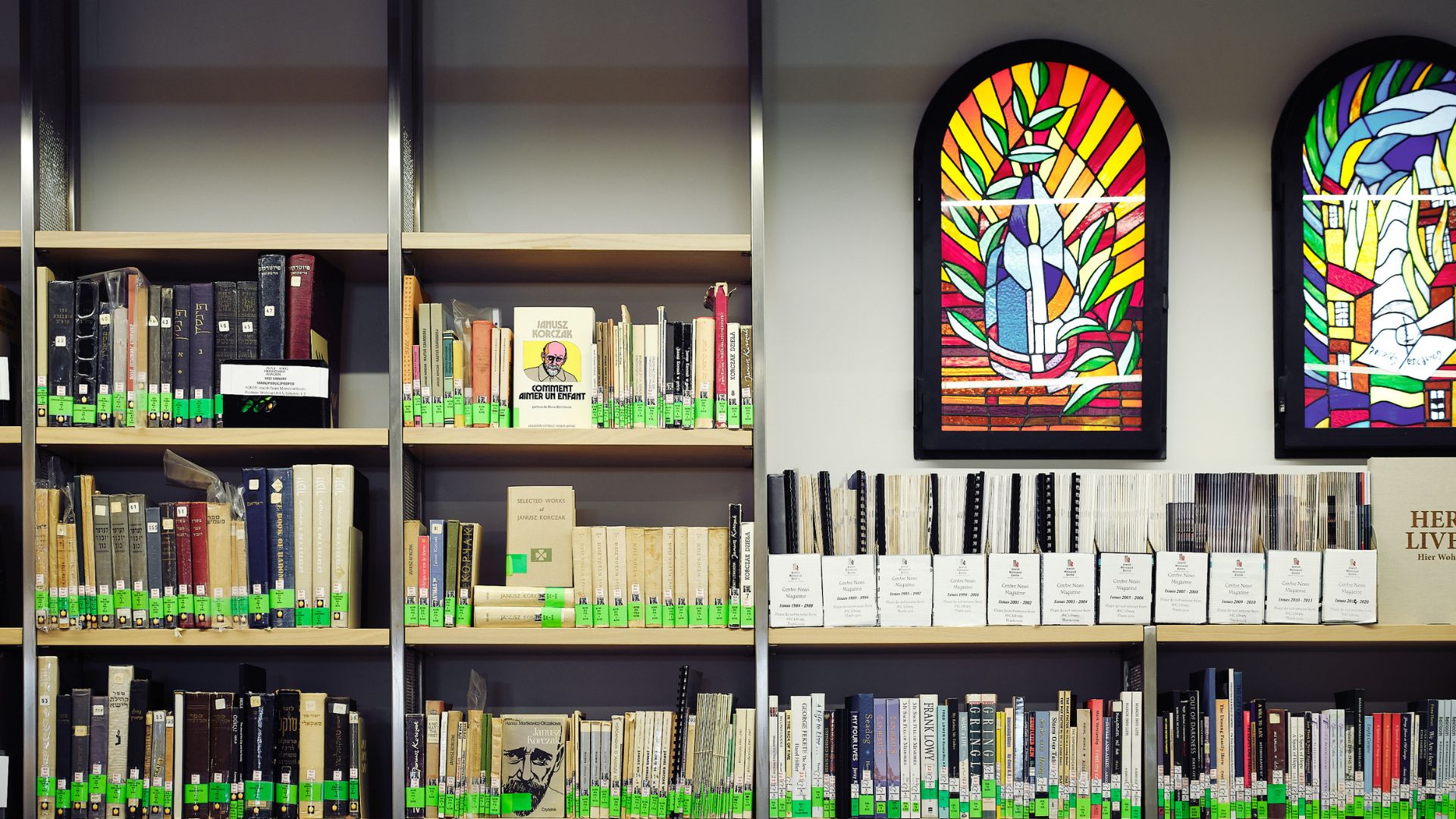
About the MHM library
Today, our library has grown to become an important centre for Holocaust research and education in Australia.
It is also linked to the Jewish Community Library Network – which combines collections from the Lamm Jewish Library of Australia (formerly Makor Library) and six other Melbourne Jewish libraries.
With unique resources featuring Melbourne-focused survivor memoirs the MHM library is a valuable space for visitors, students and researchers.
*Please be aware our online library catalogue and our online collection are currently under maintenance and will be made available to the public soon.
Our specialist collection
Our multilingual collection includes thousands of books that cover the rise of Nazism, World War II and post-Holocaust analyses.
Recent additions to the library include:
Prose and books written by Melbourne survivors
Reports and papers presented at Holocaust-related conferences
Journals, periodicals and booklets from museums and research centres around the world
Journals and documents are available in different languages, including Hebrew, Yiddish, French, English, German, Hungarian, Russian and Polish.
We also have a selection of Yizkor books (commemorative books of places and people) that are written in memory of those who were murdered. These books provide detailed descriptions of once thriving Jewish communities in Europe that have since disappeared.
You can also find volumes that list the names of ghetto inmates as well as survivor registers compiled after the war.
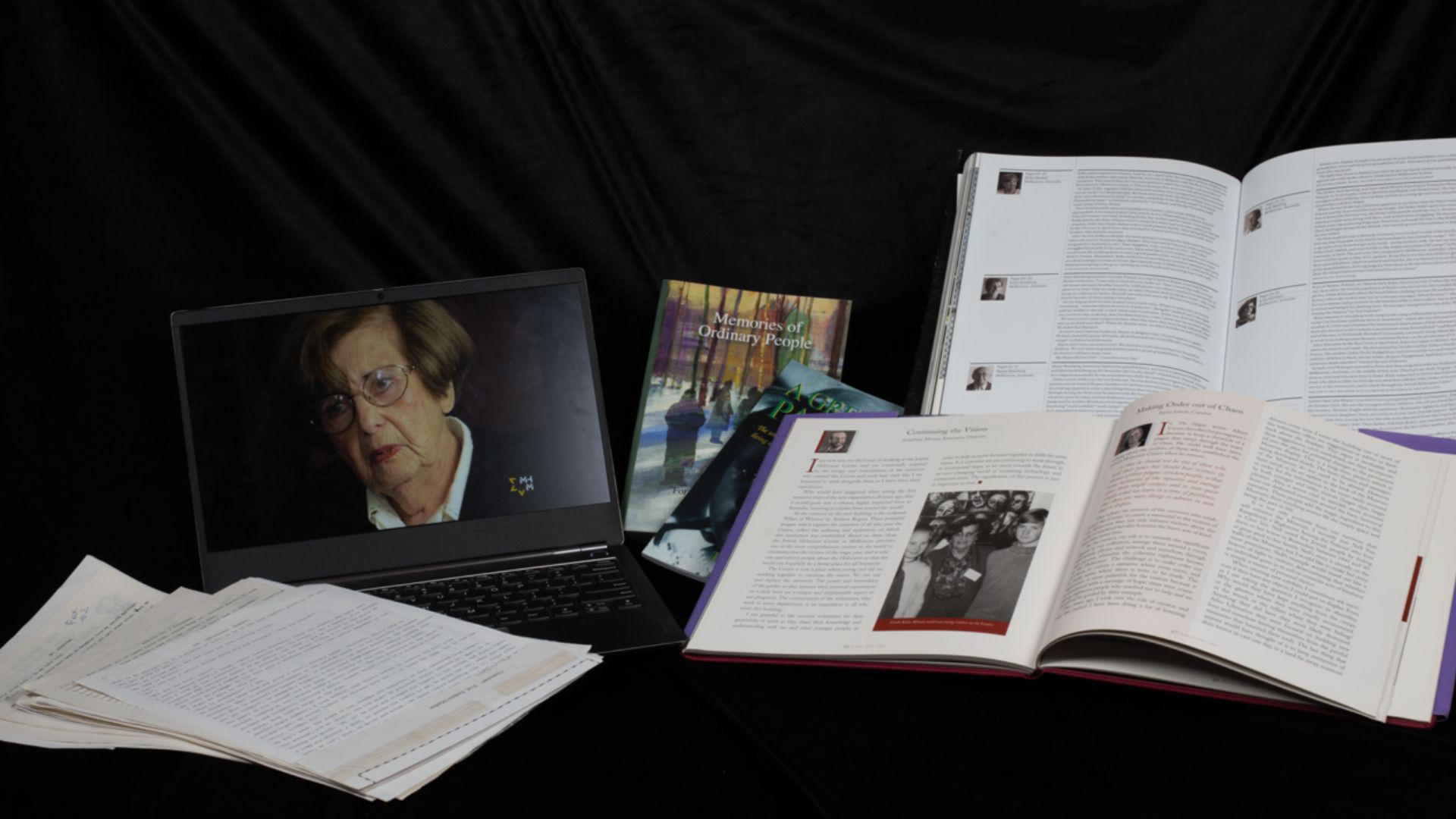
Rare or significant records
To ensure their preservation, our rare and significant books and paper records are stored in environmentally controlled conditions, separate from the general library.
We also have:
- Copies of local publications, articles and newspaper clippings on MHM events
- Video recordings and photographs of book launches, Holocaust commemorations and other special events
- MHM unpublished memoirs
To access these items, please contact us.
Our library team also provides Holocaust family tracing and researching assistance, by sourcing and evaluating relevant resources for you.
If you need help accessing testimonies, published and unpublished resources, our artefact database, reference materials or guidance to other repositories, please let us know.
Visit our library
Location and hours
10am-5pm, Sundays
1-5pm, Tuesdays to Thursdays
13 Selwyn St
Elsternwick VIC 3185
Library research and assistance
Our library services
Our ever-expanding collection of survivor testimonies is available onsite and online – and accessible to all ages and education levels.
The Phillip Maisel Testimony Project
The MHM’s Phillip Maisel Testimonies Collection holds over 1,300 unique survivor accounts – mainly from the Melbourne survivor community.
This project of recording testimonies began even before the MHM’s inception in 1984.
We continue to expand the collection by recording and making survivor testimonies accessible to researchers, families and the public.
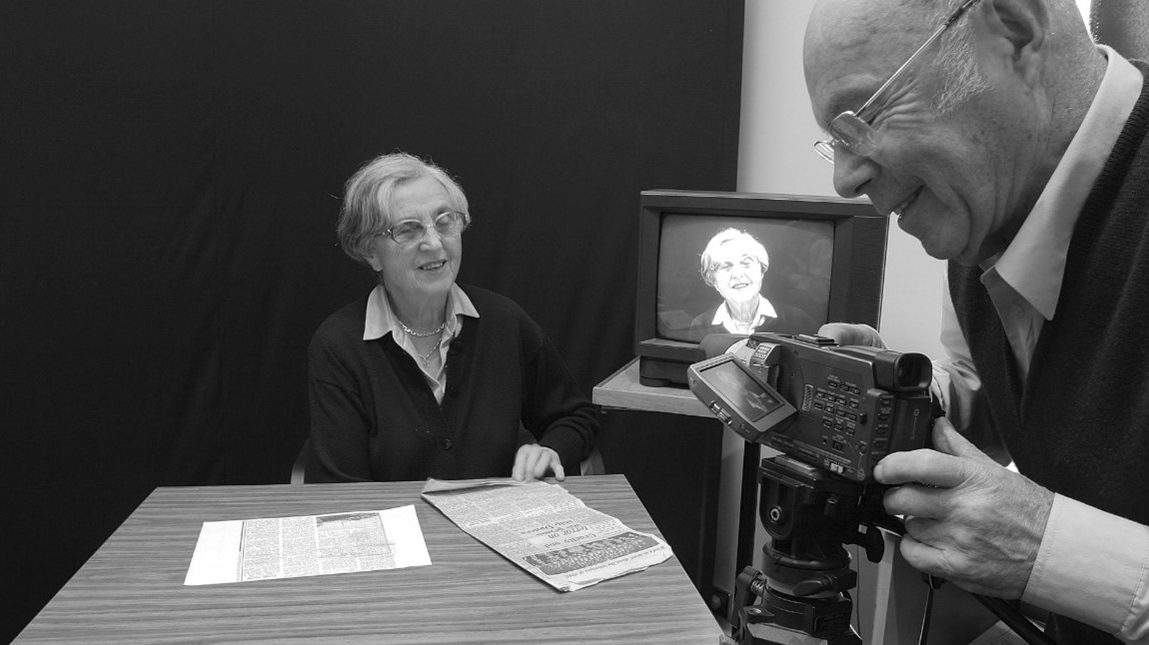
Other testimony collections
We can also provide onsite access to these collections (by appointment only):
- Shoah Foundation
- Fortunoff Collection
To request access to these testimonies, please email library@mhm.org.au
For more information on sourcing survivor testimonies, download our list of Holocaust testimony databases
Research support
Our library team is always available to help you access our collections, both online and in person. To find what you need, you can:
-
- Request specialist guidance: Our specialist librarian can provide resource guidance, navigation and access. For extended in-house assistance, please contact us to make an appointment.
- Explore online resources: There are many Australian and international online resources that can assist you with your independent research on the Holocaust and persons tracing.
Find our top ten persons Holocaust history tracing resources below
Australia – Family search
-
Australian Jewish Genealogical Society of Victoria
Provides online ancestry resources and possibility for scheduled appointment with an experienced Jewish genealogist.
-
Australian Jewish Historical Society Australian Jewish Genealogy Division
Gateway to national and international Holocaust and Jewish genealogy repositories and family tree tools.
-
National Archives of Australia
Includes names search, vessel passenger search.
-
National Library of Australia Newspapers and Gazettes
Search digitised Australian publications including newspapers.
International Holocaust databases
-
Arolsen Archives
Includes prisoner cards, displaced persons, passenger lists.
-
Auschwitz Birkenau Memorial Museum
There are two resources that could be useful in your search.
The Auschwitz Prisoner Search provides a detailed list of prisoners. Note it is incomplete due to Nazi destruction of lists.
The
Bureau Office for Information on Former Prisoners can provide information by online request or email about individuals sent to Auschwitz Concentration Camp.
-
Jewish Distribution Committee (JDC / The Joint)
JDC Archives is a searchable database of all collection records (photo, text, and names) from 1914 to present day.
The JDC Names Index allows for name searches of anyone worldwide who received JDC aid including during and after the Holocaust.
-
Jewish Gen
Jewish Gen is a multi-faceted, platform of searchable databases and networks for Jewish family history, heritage, and towns research. Also incorporates Jewish ancestry and Holocaust databases from external partnering institutions.
Holocaust database is a collection of databases containing information about Holocaust victims and survivors.
Research Divisions: Special Interest Groups, aims to expand record collection, informational content to JewishGen Knowledge Base, encourage creation of more KehilaLinks entries for towns which once had a Jewish community.
-
United States Holocaust Memorial Museum (USHMM)
Searchable collection of Holocaust artefacts from donors worldwide.
Database of Holocaust Survivor and Victim Names. Includes other international databases and further links to original documents.
-
Yad Vashem
Digital collections gateway
Digitised official and legal documents, reports, surveys and lists of persecuted individuals during the Holocaust.
Names and information of European victims submitted by relatives.
Searchable righteous and saved persons database with individual profiles, photos and maps.
For more information on persons tracing research, download our extensive list of Holocaust history tracing resources.
Browse our library collections
The materials in our collection provide a glimpse into the pre-war Jewish world. We also have key Holocaust reference materials and archival records; testimonies from the war and post-war era; and memoirs from subsequent decades.
Highlights include survivor memoirs, Yizkor Books, young adult literature, a Janusz Korczak collection, foreign language titles and a range of name registries to support family Holocaust research enquiries.
Libraries are a place of inclusion, compassion, connection and discovery. The MHM library is a site of accessible resources. We promote knowledge as key to nurturing understanding of the past, so that we can improve our humanity and compassion.”
Contact us
- If you have an enquiry relating to objects in our collection, please contact collections@mhm.org.au.
- If you have an item you would like to donate please contact collections@mhm.org.au
- If you have an enquiry regarding our library, local survivor memoirs, Fortunoff/Shoah Foundation testimony onsite bookings, Holocaust persons tracing or general Holocaust research, please contact library@mhm.org.au.
- If you would like to access a testimony from our collection, please click here
- If you wish to record a testimony, please contact testimonies@mhm.org.au.
